Looking for the best Books On Japanese History? Well, check out the list of top history books from Japan that will give you an insight into Japanese history. Read further to know more.
The origin of Japan and the Japanese people can be traced back to the Yayoi people. The first came and began settling down in Japan between1000 BC and 300 BC. They soon began mixing with the Jomon culture.
Japan has a rich, yet troubled and complicated history. Its past is marked by the rise and fall of empires, wars, new traditions coming up and old ones dying out and so many more important events that have shaped the country and influenced the world.
Best Japanese History Books: Quick Summary
| Best Japanese History Books | Author |
| The Rape of Nanking: The Forgotten Holocaust of World War II | Iris Chang |
| Embracing Defeat: Japan in the Wake of World War II | John W. Dower |
| Hiroshima | John Hersey |
| War without Mercy: Race and Power in the Pacific War | John W. Dower |
| The Book of Five Rings | Miyamoto Musashi |
The poorly translated pieces of history that are found in museums do no justice to the history of Japan. History books have a bad reputation of being boring and an absolute drag to read. But I’m here to change that thought process.
Whatever your reason is to learn about Japanese history, finding the right kind of these best Japanese history books is important.
Which is the best Japanese history book?
“The Rape of Nanking: The Forgotten Holocaust of World War II” was written by Iris Chang and published in 1997. It is a best selling non fiction book that sheds light on the Nanking Massacre that occurred during 1937- 1938 and is a sad and brutal tale of the atrocities done by the Japanese army. . This controversial book is a must read for anyone interested in the history of Japan. It’s available on Amazon for sale.
From age-old Japanese traditions to wars, there are plenty of Japanese history books that cover important events of Japanese history. And no, they are not like your history books from school.
- Related: Best Japanese Books to Read
Here is a list of the best Japanese history books that are suitable for history buffs as well as casual readers.
Best Books On Japanese History
A History of Japan by George Sansom
The country of Japan is steeped in rich and vibrant history that dates back centuries, and few people have a better understanding of that history than George Sansom.
Located in the Pacific Ocean, the island nation has a long and tumultuous history, but it has been given immense insight and knowledge thanks to the work of Sir George Sansom.
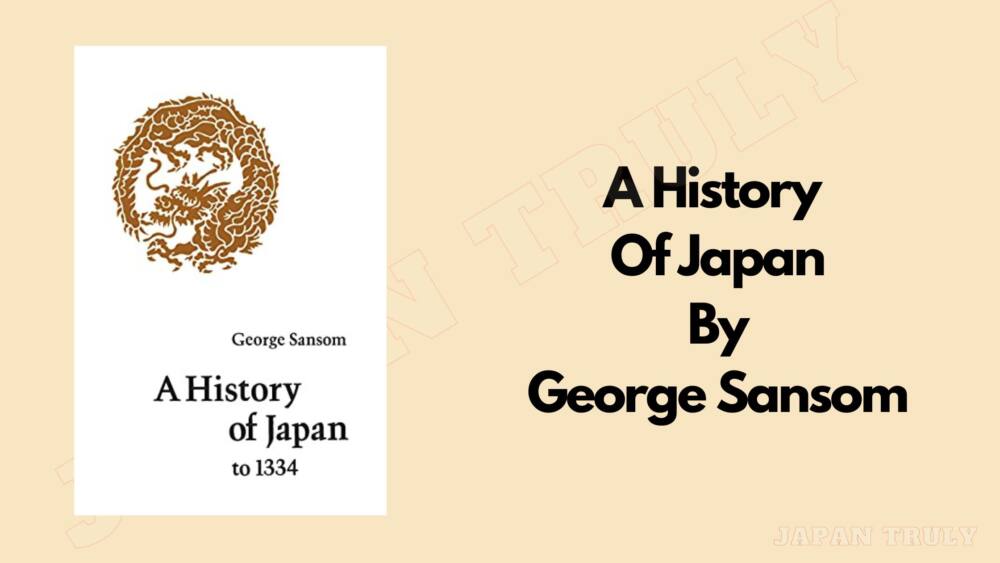
Sir George Sansom was a British diplomat and a renowned historian of pre-modern Japan. With a dedication that earned him a knighthood from the king, Sansom devoted his life to studying the history of Japan and published his acclaimed works in a three-volume series of books.
The books cover the country’s history from 1334 to 1867, collectively known as “A History of Japan.”
But it wasn’t just the length or scope of Sansom’s works that earned him such acclaim.
Sansom also worked hard to ensure his books were of the highest possible quality, with a clear, concise approach to covering the history of Japan. In each volume, Sansom endeavors to provide deeper insight than what one can find in other books on the topic.
Detail-oriented and precise, “A History of Japan” is one of the most comprehensive and exhaustive books on the topic of Japanese history.
Sansom took his serious approach to his work to a great deal of detail, even providing readers with glimpses of Japan’s cultural life, along with its political and social changes.
Traditional religious views were also discussed, illustrating the impact religion had on the nation as it changed over time.
Sansom’s works also showed the influence of Western literature on Japanese literature, pointing out the impact of European works on Japanese translations.
This provided readers with a clear sense of how different aspects of culture permeated Japan from the outside and how those external influences were assimilated within Japan’s own culture.
Another detail Sansom was keen to ensure was included in “A History of Japan” was the nuances of Japan’s diplomacy, or “giri.” In these volumes, readers are given an understanding of the intricate relationships between Japan and foreign countries before the opening of the country in the mid-nineteenth century.
By combining detail and insight with a clear narrative and approach, Sa
nsom created one of the most important works of the twentieth century on the subject of Japanese history.
In his three volumes, Sansom covered all aspects of Japan’s history, from the years of the shogunate to the coming of imperialism. Thanks to Sansom’s “A History of Japan,” readers can gain a better understanding and appreciation of the Japanese culture, past and present.
Lost Japan By Alex Kerr
Lost Japan by Alex Kerr is a timeless classic among Japanese history books. Through its pages, Alex Kerr takes the reader on a mesmerizing journey, introducing them to the country he has come to know and love in the past thirty years of his life.
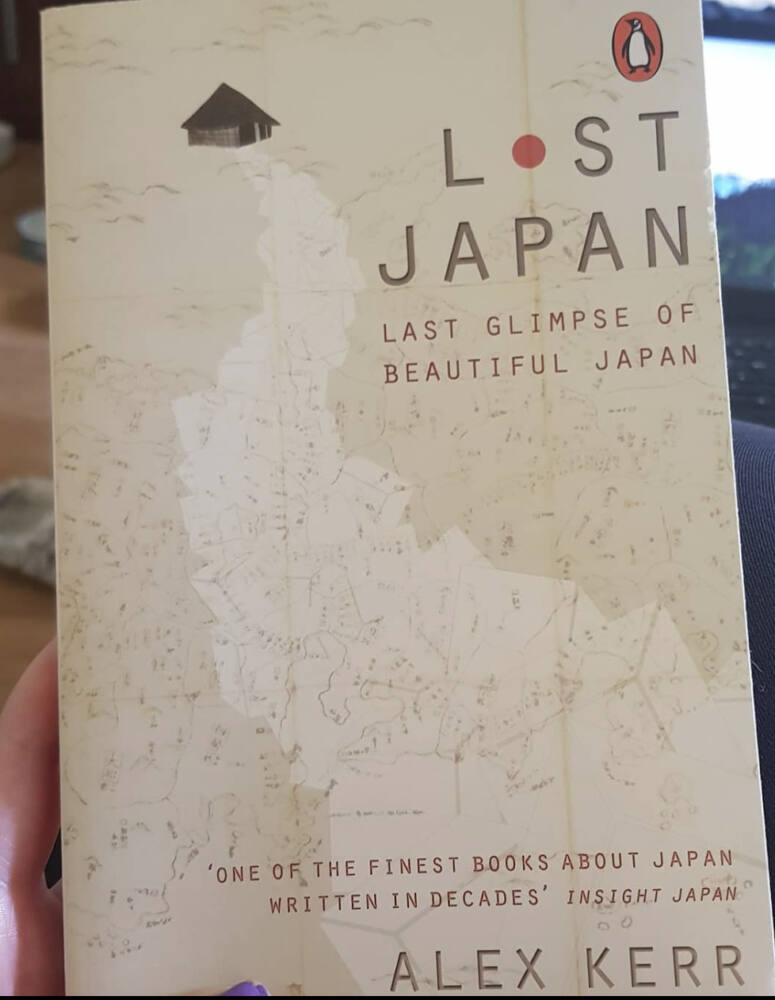
It is evident in his words that the author has a deep respect and affection for his adopted home, and the book reads like a true love letter to the country of Japan.
Lost Japan covers everything from the culture, art, and architecture of the country to its contemporary issues, such as the economy and the environment. But it is the sincerity of Alex Kerr's writing that truly resonates.
His time-honored knowledge and expertise in the many aspects of life in Japan are tastefully and thoughtfully presented, allowing the reader to gain insight and perspective on the extraordinary culture of Japan.
It is only fitting, that after gaining such widespread recognition, Alex Kerr became the first foreigner to be awarded the Shincho Gakugei Literature Prize for the best work of non-fiction published in Japan.
Through his beautifully written words, Alex Kerr has been able to capture the true beauty and spirit of Japan and put them onto paper.
Lost Japan is a passionate and intense exploration of the inner and outer workings of the mysterious country, covering a wide range of topics and perspectives.
From the post-war trajectory of the country to the examination of its sense of place in the modern world, the book is incredibly comprehensive, yet still easy to read. Every reader will be able to benefit from its wisdom and enjoy its entertainment value.
It is an unforgettable read that has been lauded for its informational accuracy and candid approach to the complexities of Japanese culture.
Lost Japan by Alex Kerr is more than a Japanese history book, and more than a reference guide. It is a mesmerizing exploration into the heart of Japan and its soul and spirit, making it a must-read for anyone wanting to understand the true essence and attitude of the Land of the Rising Sun.
Japan: A Short History by Mikiso Hane
When it comes to the history of Japan, few people can be as qualified to provide us with insights, knowledge and understanding as the late Mikiso Hane.
As Szold's Distinguished Professor Emeritus of History at Knox College in Illinois, Hane devoted his life to educating others about Japanese history, particularly the last 200 years, which he was able to cover in his book, "Japan: A Short History".
Japan: A Short History by Mikiso Hane is a good 200-page overview, touching on history, politics, economics, & culture. It goes into most depth on recent history (the past 200 yrs) including WW2 & post-war. It came out in 2000 so it's not super up-to-date, but I learned a lot! pic.twitter.com/vAgVAQetjp
— Godzilla: A Critical Demonology (@GDemonology) September 23, 2021
Hane's deep understanding and appreciation of Japanese history emerge in his book, as he takes readers on a 10,000-year journey through time.
From the earliest civilizations in 8000 BC to the present day, Hane masterfully covers the most crucial major events and developments that have shaped the country into what it is today.
Not only does Hane go through the important historical eras of Japan, but he also takes readers on a journey through the country's culture, society, economics and politics, which have each had a substantial impact on the timeline of Japan.
With his passionate and entertaining writing style, Hane makes the book a compelling read, ensuring the reader feels fully engaged in the story.
In the book’s foreword, Hane claims that “by helping readers understand the singularly Japanese nature of Japanese history”, he hopes to create a bridge between East and West, and promote a deeper understanding of Japanese culture- something that is especially relevant in today’s ever-growing globalized world.
Hane also took great lengths to make the book as concise, yet thorough as possible.
By skillfully balancing depth with clarity, Hane was able to provide readers with an extensive overview of Japanese history, without getting bogged down in excessive detail.
For those who have the desire to dig deeper, there are also numerous references and citations that are included throughout the book, allowing readers to explore the topics further.
In summary, "Japan: A Short History" is a must-have for anyone looking to learn more about Japanese history and culture. The book's comprehensiveness, clarity and insight make it second to none.
Mikiso Hane’s legacy lives on in this book and others, as we continue to marvel at the depth of understanding and insights he provides us.
The Rape of Nanking: The Forgotten Holocaust of World War II By Iris Chang
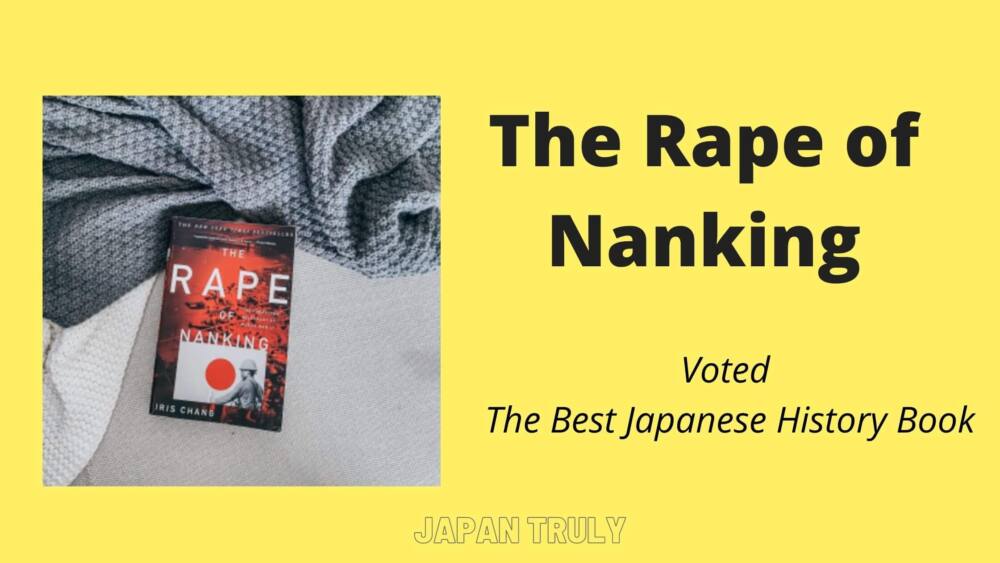
Author: Iris Chang
Year of publication: 1997
“The Rape of Nanking: The Forgotten Holocaust of World War II” was written by Iris Chang and published in 1997. It is a best selling non fiction book that sheds light on the Nanking Massacre that occurred during 1937- 1938 and is a sad and brutal tale of the atrocities done by the Japanese army.
This controversial book is a must-read for anyone interested in the history of Japan. It's one of the best Japanese history books of all times.
The Nanking Massacre also known as the Rape of Nanking was a series of murders and rapes that were committed by Imperial troops in Nanking, China during the Second Sino- Japanese War.
The book is based on interviews and real life accounts of Japanese soldiers who committed these atrocities, Chinese victims and eyewitnesses, and a group of Europeans and Americans who helped save many lives.
Chang’s work received much acclaim as well as criticism. The book was the first to show the extent of the crimes for what they truly were and give the brutal details of the massacre.
A large part of the research for her book was taken from the diaries of John rabe and Minnie Vautrin. Chang spent about two years researching before she wrote her book. Before publication, Rana Mitter, a well known historian, and Christine Jessen- Klingenberg reviewed the book.
Since she didn’t conduct any part of her research in Japan, Chang was exposed to criticism from Japan. Japan was quick to defend itself and stated that the numbers of rapes and murders were inaccurate.
Chang was the victim of a lot of backlash and hate from Japanese ultranationalists. She received death threats and hate mail regularly and this contributed to her already deteriorating mental health. She eventually took her own life.
Pure Invention By Matt Alt
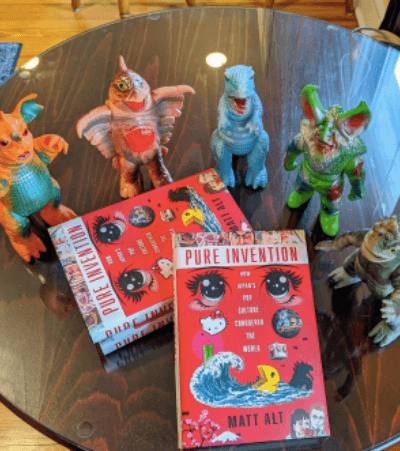
Author: Matt Alt
Year of Publication: 2020
Pure Invention is one of the most powerful and the best Japanese history books that I’ve ever read. It talks about how Japanese culture is me with a political, industrial, and economical perspective from Hello Kitty, anime, manga, and a lot more.
I love this book because it talks about modern-day Japan after World War II till the current situation will keep you engrossed and fill you with informative knowledge. It’s extremely easy to read and Matt Alt has gracefully written it with a lot of research.
The story begins with toy manufacturing and, later, transistor radios, followed by such exports as the walkman, video games (Pac-Man, Space Invaders, Donkey Kong, Sonic the Hedgehog), and manga and anime, Hello Kitty, as well as Haruki Murakami. There’s a lot to learn about the culture of Japan from this book.
Bending Adversity: Japan and the Art of Survival By David Pilling
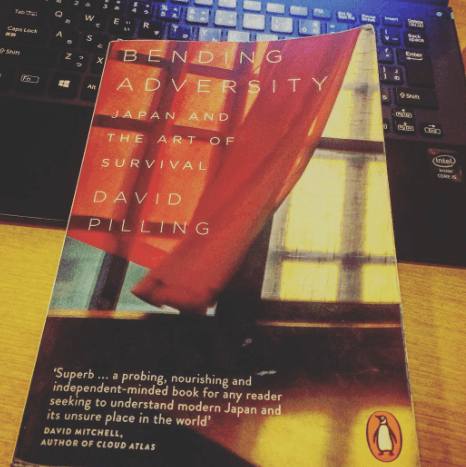
Author: David Pilling
Year of Publication: 2014
Bending Adversity: Japan and the Art of Survival is one of the books about Japanese history that will not bore you for sure.
The intertwined unique stories really bring this book to life. That is an odd thing to say given that the majority of the stories arose from negative events. Because of the nature of the book, it contains a variety of biases, which is completely normal. It is natural, for example, for people to think of their country as completely unique.
I discovered a strong fondness for some traditions and social behaviors that reflect my own opinions and viewpoint, such as politeness, cleanliness, and interactions with nature.
The crux of this book is more about the modern history of Japan covering the Tsumani of 2011 to the Fukushima Daiichi Nuclear Disaster. You’ll also find a lot of backing from research, writings, interviews with popular authors, feminists, etc.
Embracing Defeat: Japan in the Wake of World War II By John W. Dower
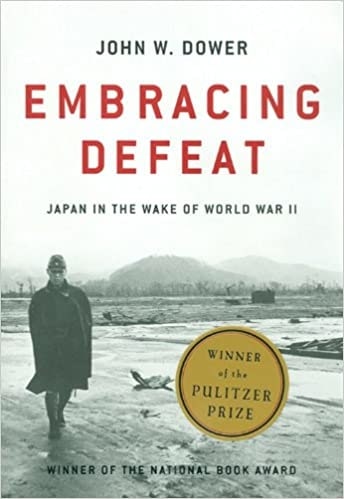
Author: John W. Dower
Year of publication: 1999
An enthralling read by John W. Dower, “Embracing Defeat” is an important read if you want to know about what Japan went through after World War II.
The book covers important events like the administration of Douglas MacArthur, the Tokyo war crime trials, Hirohito’s controversial Humanity Declaration, and the drafting of the new Constitution of Japan.
The book is a result of extensive research by Dower and contains many illustrations from documentaries. It's amongst best Japanese history books.
This beautiful unpacking of Japan’s defeat and reconstruction is a must read for anyone interested in Japan’s war history.
Dower’s work has been the recipient of much acclaim and has won many awards, including the 2000 Pulitzer Prize for General Non- Fiction, the 1999 National Book Award, and the 2000 Bancroft Prize.
Hiroshima By John Hersey
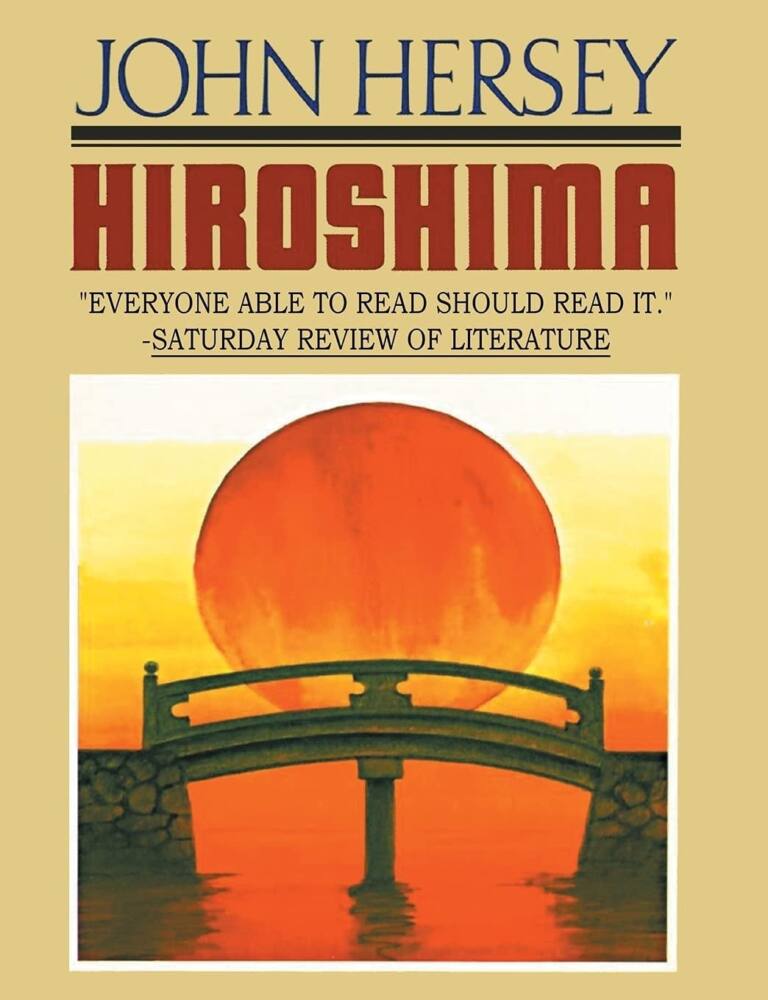
Author: John Hersey
Year of publication: 1946
The atomic bombing of Hiroshima is one of the most famous events in the history of Japan. The tragic event resulted in the death of 129,000 to 226,000 civilians. It's one of the best books on Japanese history.
John Hersey’s “Hiroshima” is often considered to be one of the first examples of new journalism. He uses fictional storytelling methods to report non fictional events.
Hersey was a war correspondent and was one of the first Western journalists who visited Hiroshima after the bombing. He was sent there to write an article on the impact of the bombing for The New Yorker. For this, he interviewed many witnesses and his article placed six of these witnesses in the spotlight.
After receiving much acclaim and many requests for a reprint, the article was published as a book. It's one of the best Japanese history books to know about Hiroshima attracks.
The book gave the horrifying details of the destruction left in the wake of the bombing. The book contains the experiences of two doctors, a Protestant minister, a widowed seamstress, a young female factory worker, and a German Catholic priest.
Each chapter of the book contains events from the morning of the bombing to a year after. An extra chapter was added to later editions which shares the aftermath 40 years after the bombing took place.
War without Mercy: Race and Power in the Pacific War By John W. Dower

Author: John W. Dower
Year of publication: 1986
Another masterpiece by John W. Dower, “War without Mercy” covers the view of the Japanese and their Western adversaries during the Pacific War.
Through this book, Dower brings to light the racist foundations of the Second World War. After the events of Pearl Harbour, Japanese- American soldiers were sent to concentration camps even though there was no evidence of conspiracy.
He portrayed a contrast between the racism faced by the Japanese people at the hands of Westerners and their attitude towards Germans. It's one of the best books about Japan history
“War without Mercy” has four sections. Section one shows the patterns of a race war. Section two gives a Western perspective on the war while part three gives a Japanese perspective. Part four is an epilogue about these viewpoints.
This book gives readers a hidden dimension of the Pacific War and sheds light on American and Japanese songs, propaganda films, slogans, cartoons and other important aspects of that time. It's among the best Japanese history books.
The Book of Five Rings By Miyamoto Musashi
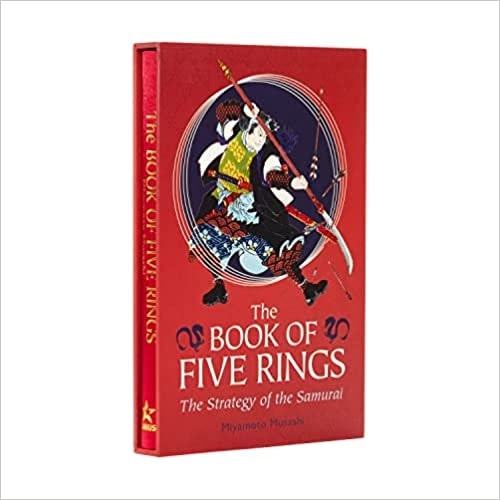
Author: Miyamoto Musashi
Year of publication: around 1645
“The Book of Five Rings” or “Go Rin No Sho” is a 1645 text on Japanese swordsmanship (kenjutsu) and martial arts in general. It is not exactly a history book of Japan, but it is a book about a very important aspect of Japanese history and culture.
This book may be slightly more complicated to read and grasp. The chapters or “books” are Musashi’s teachings that he gave to his students at his dojo.
The five books are a reference to the belief that just as there are different physical elements in life, there are also different elements in battle. It's amongst the best Japanese history books to buy and books about Japanese history that you should definitely be reading.
The five books included are “The Book of Earth”, “The Book of Water”, “The Book of Fire”, “The Book of Wind”, and “The Book of Void”.
How did we choose the best Japanese history books?
Our in-house team of history buffs went over 25 different Japanese history books and rated them based on the style of writing, clarity, ease of reading, understandability, and international reviews. After a critical review, we have put together this list of the best Japanese history books.
While researching these books, we found that “The Rape of Nanking: The Forgotten Holocaust of World War II” is the best Japanese history book. Written by Iris Chang, this book throws light on the unforgivable atrocities committed by the Japanese army.
Best Japanese History Books: FAQs:
What is the oldest Japanese book?
How old is Japanese culture?
What is the oldest period in the history of Japan?
What is the best book on Japanese history?
- The Rape of Nanking
- Embracing Defeat
- Lost Japan
- War without Mercy
- Hiroshima
- The Rising Sun
- The Making of Modern Japan
- The Book of Five Rings
What is a good book to know about Japanese history?
Is The Rape of Nanking a good Japanese history book?




Comments (0)
There are no comments for this article. Be the first one to leave a message!